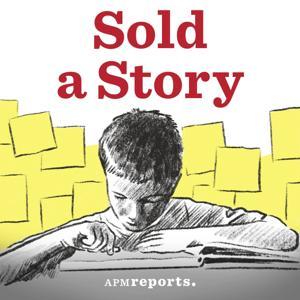In today’s episode of Literacy in Color, we’re chatting with Ashley Doty, founder of Uncomplicate Ed, an organization dedicated to making teaching and learning clearer, simpler, and more effective. Drawing on two decades of experience across the education landscape (and even a past life as a theater educator!), Ashley brings both heart and science to this conversation.
They dig into what the science of learning actually looks like inside real classrooms, how small shifts can spark huge gains, and why teachers don’t need more complexity; they need clarity, purpose, and research-based practices that truly work for students.
You'll hear Ashley break down concepts like retrieval practice, interleaving, chunking, background knowledge, student engagement, motivation, and how to support learners in a way that honors both the art and the science of teaching. She shares incredible real-world results from classrooms and schools who leveraged these principles — including 15+ point mid-year gains and 22-point year-over-year proficiency jumps.
If you're an educator who wants practical ways to strengthen learning without adding more to your plate, this is a must-listen.
Key Takeaways:
- Why simplifying instruction (without oversimplifying learning) is essential.
- How retrieval practice and spaced practice transform long-term memory.
- Interleaving — what it is, what teachers get wrong, and how to implement it realistically.
- How poetry, speeches, and small “tweaks” can dramatically improve engagement and retention.
- The relationship between learning science and motivation, student agency, and teacher-student relationships.
Resources Mentioned:
- Book: Powerful Teaching by Dr. Pooja Agarwal & Patrice Bain
- Retrievalpractice.org – free resources (Pooja Agarwal)
- Book: 10 to 25: The Science of Motivating Young People by David Yeager
This post may contain affiliate links, which means if you click on a link and make a purchase, I may earn a small commission at no additional cost to you. Thank you for supporting the podcast!
Connect with Ashley Doty:
- Website: https://uncomplicateed.com
- Facebook Group: Uncomplicate Ed & Uncomplicating Education Across the Nation
- YouTube: @UncomplicateEd
- Instagram: @UncomplicateEd
Connect with Me:
- Follow me on Instagram: @michelle_thecolorfulclassroom & @logosliteracyacademy
- Join our Facebook Community
- Sign up for my Newsletter
- Shop on TPT: The Colorful Classroom
- Visit: www.michelleandthecolorfulclassroom.com
- Join The COLORFUL Literacy Toolkit Membership
Want to Support the Podcast?
- Make a Donation to Support Production
Interested in Learning More about Morphology?
- Take our Course: Mastering Morphology: Foundations for Every Educator




































